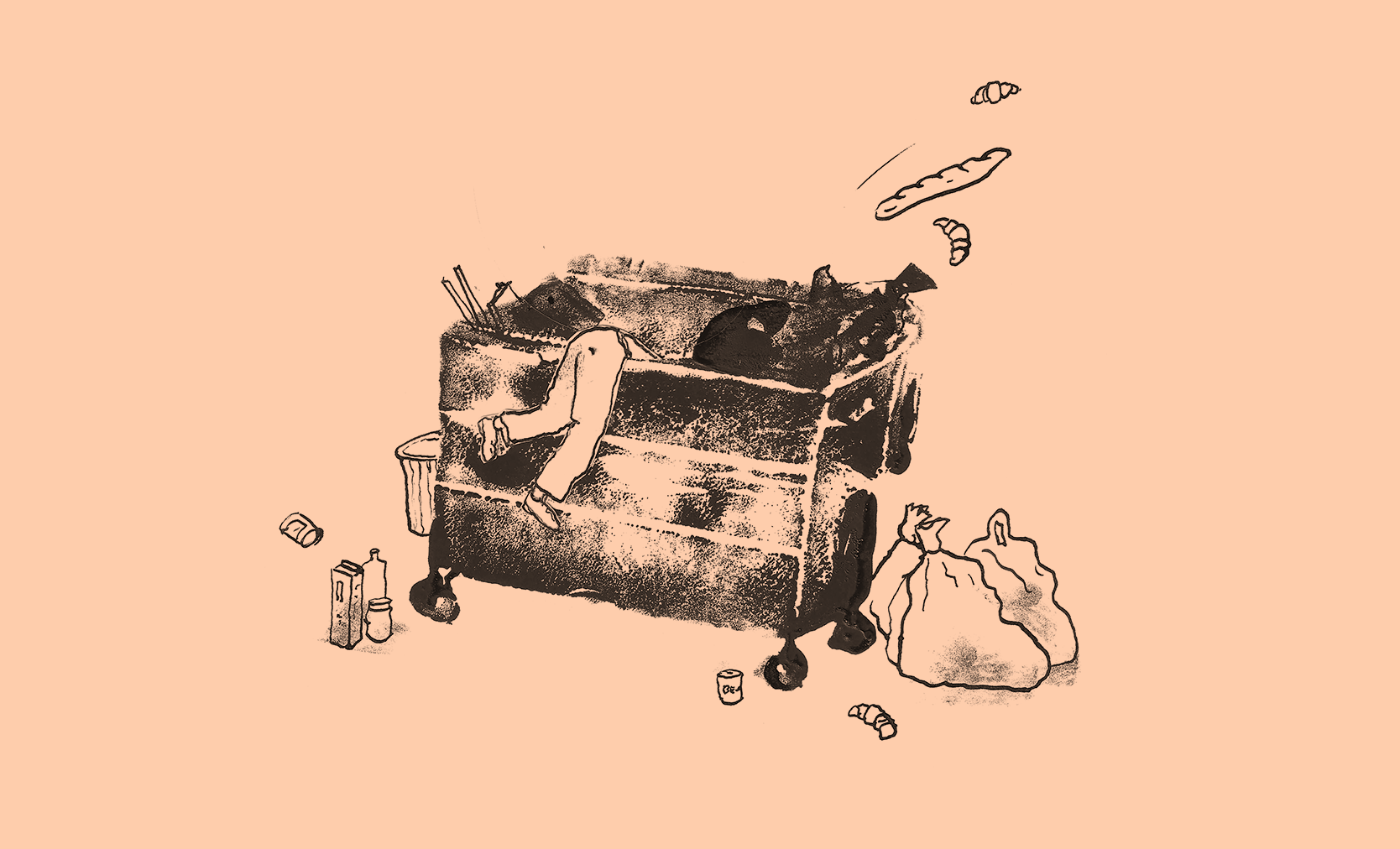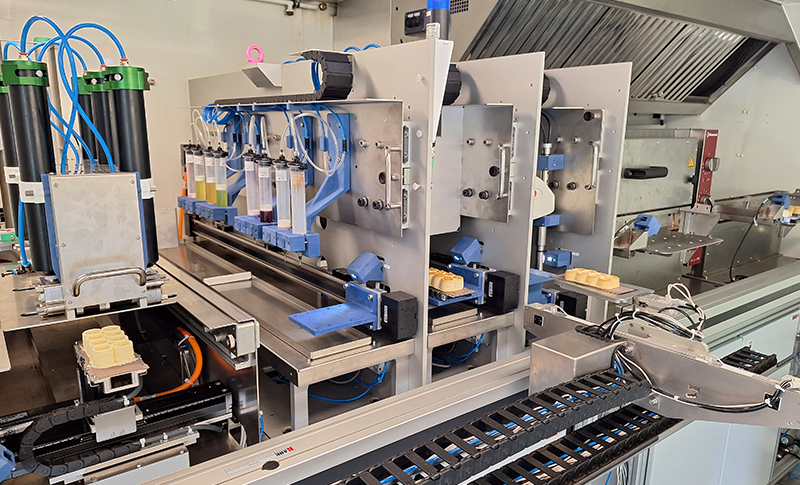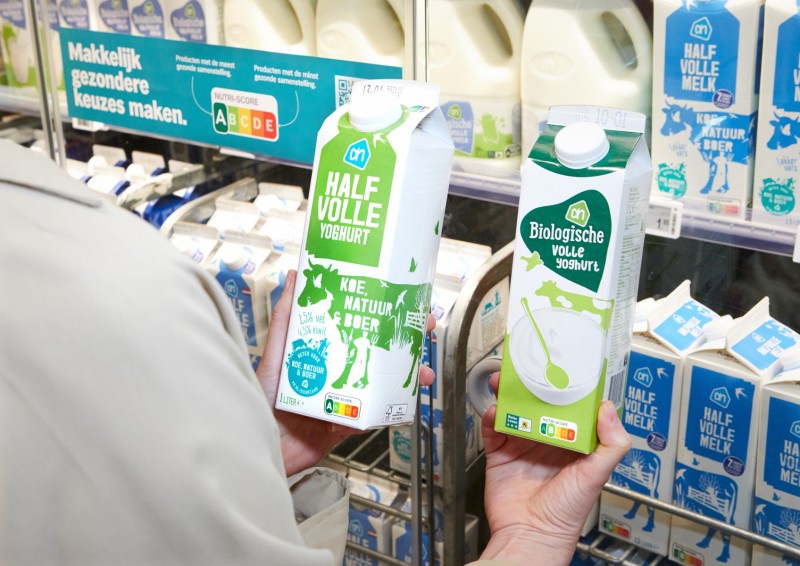‘Dumpster diving’ — looking in rubbish bins for food that’s still edible — is becoming a popular activity among people who want to reduce food waste. There are dumpster divers operating in and around Wageningen too. How does it feel searching for food in a bin? And what do you need to know if you want to try it? Resource spoke to two dumpster divers, a beginner and a veteran.
WUR-student Magdalena* maakte onlangs haar dumpster dive debuut.
‘My flatmate regularly “does the grocery shopping” by dumpster diving. We have a large fridge that we fill every week with food that the supermarket throws away. I thought dumpster diving sounded interesting, as if you literally dive into a stinking rubbish bin. So one evening, I went along with my flatmate to try it out.
‘We wore old trousers and rubber boots because you can easily step in an open yoghurt carton. We also had helmet lights, large shopping bags and plastic gloves. Incidentally, there are hardly any opportunities for dumpster diving in Wageningen, as most supermarkets lock their waste containers. So we had to drive about 15 minutes to find a suitable location.
‘Somebody had just dumped a whole load of advertising folders so we had to remove those first to get to the food. On a balcony above us, someone stood smoking and watching me picking things out and handing them to my partners in crime. I climbed back out of the container a little later, with my hands covered in sauce and with a vague feeling I was doing something clandestine. Less than ten minutes later, we were on our way home with full shopping bags.
Dumpster diving is really a kind of grocery shopping, only dirtier
‘Back home, it took us a good hour to sort the stuff. There was a lot of potato salad and liver sausage, both of which I find really disgusting. We also had a lot of meat and fish. If the weather’s cold and it’s only just been thrown away, it’s often still OK for a while, but you need to be careful — sniff and examine it before you eat it. I’m normally a vegetarian, but it’s such a shame to throw away meat because then the animals died for nothing. So then I eat meat. We also had a bag with 200 bread rolls, regular and chocolate croissants and more stuff from the bakery section, baked fresh that day but unsold. We shared the rolls with everyone in Droef.
‘Dumpster diving is really a kind of grocery shopping, only dirtier. And you don’t know what you’ll bring home. I think it’s a nice way of combating food waste. It’s also good to use your senses to decide whether food is still edible rather than purely relying on the sell-by date. We’ve kind of forgotten how to do that in modern times.’
WUR researcher Renaud* from France has been dumpster diving regularly for ten years.
‘I read about dumpster diving in the university magazine when I was studying for my Bachelor’s in France. When I moved into a shared house where housemates were already doing it, I asked if I could join them. That’s how it started.
‘At first, I was just curious to see what you could find. That’s still one of the nice things: the thrill of never knowing what you’ll get. You rummage around, observing and using your senses. You need to touch, sniff and taste the food you find. Dumpster diving makes you more conscious of what you consume.
‘After a while, I began exploring the city on my own in search of good places for dumpster diving. One bakery became my favourite: every time I went there, I came home with bags full of croissants, baguettes, brioches and more. Sure, they were from the day before, but they still tasted great. I shared them with my classmates, saying, “It’s from the bin so eat at your own risk”. One day, the bakery owner caught me. He was angry and wanted to chase me away, but I stood my ground because I wanted to talk to him. In the end, he agreed it was better for the food to be eaten rather than thrown away. That was a beautiful moment.
It’s a nice hobby, but it’s sad to see how much food is thrown away
‘I also spent some time in the south of Spain, where they produce a lot of fruit and vegetables for the rest of Europe. Everything that’s too ripe to export just gets thrown away. I never had to buy fruit or vegetables when I was living there.
‘There aren’t many places in Wageningen where you can go dumpster diving because most supermarket containers are locked. But I managed to find one spot and I still go there every other week. It’s a nice hobby and you are rewarded with free food, but it’s also sad to see how much food is thrown away. Dumpster diving only lets you save a fraction of that.
‘Advice for people who want to try it out? Go in the winter, because then the food stays fresh longer and it’s darker so there’s less risk of you being disturbed. Be careful about what you decide to eat, especially when it comes to meat products. And be respectful. Don’t damage anything or throw trash around. And if people ask you to leave, then leave.’
* Fictitious names have been used for the interviewees as dumpster diving is illegal in parts of the Netherlands.

 Illustration Marly Hendricks
Illustration Marly Hendricks 
![[The Proposition] ‘Environmental science enables a healthy environment in a nonstop polluting society’](https://www.resource-online.nl/app/uploads/2024/05/WEB_de-stelling.png)
